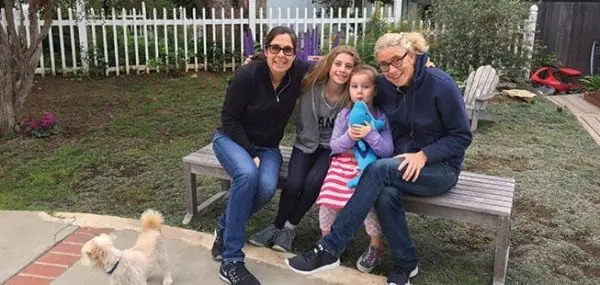In her New York Times bestselling book, All Joy and No Fun, Jennifer Senior writes honestly about the trials, tribulations—and joy—of raising children. Your Teen talked with Senior about raising teenagers and the effects of the adolescent years on parents and why we have such a hard time separating our own teen experiences from those of our kids.
Interview with Jennifer Senior, Author of All Joy and No Fun
Q: In your book, you quote Laurence Steinberg, a psychologist at Temple University, who says that the adolescent period is much harder on parents than kids. “Most of them seem to be going through life in a very pleasant haze,” he says about adolescents. Do you think that’s true?
Senior: I don’t believe Steinberg discounts what kids are going through. He acknowledges that some teenagers suffer terribly during adolescence—because they’re gay, because they’re being bullied, whatever. He also acknowledges the more routine despair in adolescence—the “I’m not pretty despair” and “I’m not a jock despair.” But, these examples might not cause sustained despair. A surprising number of parents experience their kids’ adolescence as an actual crisis and they suffer deeply, while teenagers might see adolescence as a collection of really terrible moments and really intense moments, but also really good moments.
Q: Why do you think the adolescent years are so jarring and disorienting for parents?
Senior: Most parents find that ages 6-12 are pretty tranquil. Kids still respect their parents’ authority, love being around them and aren’t shy about showing affection. That love and admiration energizes parents. So, when the adolescent starts to assert his independence—as they rightfully should, developmentally—it’s a real blow. Before, your kid was respecting your authority; now, he wants to break away from the family republic. It’s a secession attempt, really. And secession attempts, as we know from history, are always destabilizing.
Q: Why is it that we sometimes have a hard time separating our own high school experiences from those of our kids?
Senior: Adults are disproportionately inclined to remember things that happened between the ages of 15 and 25. As your kid lives out this stuff in real time, your memories are on tap, which means that when you hear about a situation affecting your teenager, you are immediately hurled back to high school and how you felt at that time.
Q: You mention the frustration parents feel when logic doesn’t work with toddlers. How do teenagers respond to arguments based on logic?
Senior: Adolescents know how to reason. The problem, though, is that they haven’t lived long enough to have really deep experiences, so when they’re arguing passionately about a subject, they’re basing their argument on two or three experiences. It can be very frustrating to a parent. Also, their brains aren’t fully hooked up yet—their prefrontal cortex isn’t completely developed—so the emotional parts of the brain are still most active. This is why a lot of conversations that start off rationally can suddenly evolve into emotional outbursts.
Q: Many parents struggle with wanting to give privacy, but worrying about safety. Are there any ways to balance these two things?
Senior: My book is more descriptive than prescriptive, but I remember being very surprised when Nancy Darling, a professor of psychology at Oberlin, said to me, ‘Look, you have to snoop.’ In previous generations, when the phone rang, you knew who called because there was only one phone in the house. But raising teenagers today, to be aware of what’s going on, she says you need to snoop. I don’t think she’s suggesting that you do it with abandon. And, I think the more offline dialogues you can have about this stuff, the better.
Q: You recently started a campaign, telling mothers that they should stop with the parenting guilt and comparisons and start thinking, “I am the standard,” instead.
Senior: This is something I feel strongly about. I want to see it silk screened on t-shirts and inscribed on peanut butter jars. I want to see it everywhere. Women, disproportionately, feel guilt. They feel guilt in ways they shouldn’t. They read parenting books and think they fall short. They’ll come home from work wanting 15 minutes of alone time and think that makes them selfish, bad mothers. They are doing the best they possibly can, and they need to recognize this. They need to realize, “I am the standard.” Anything else feels like a recipe for heartbreak and insanity.




